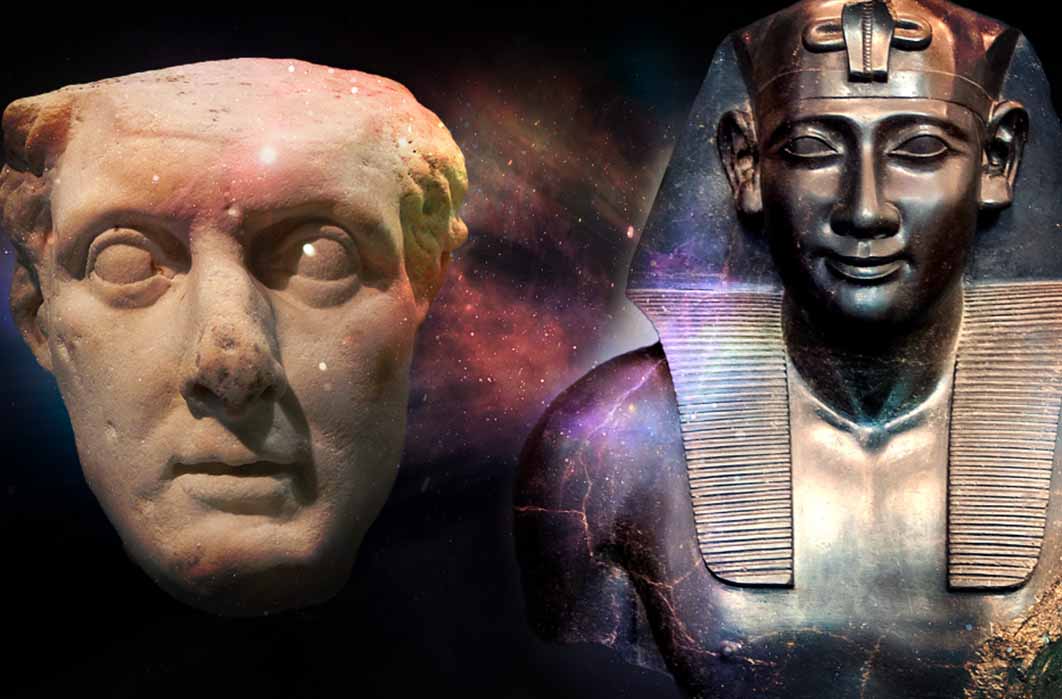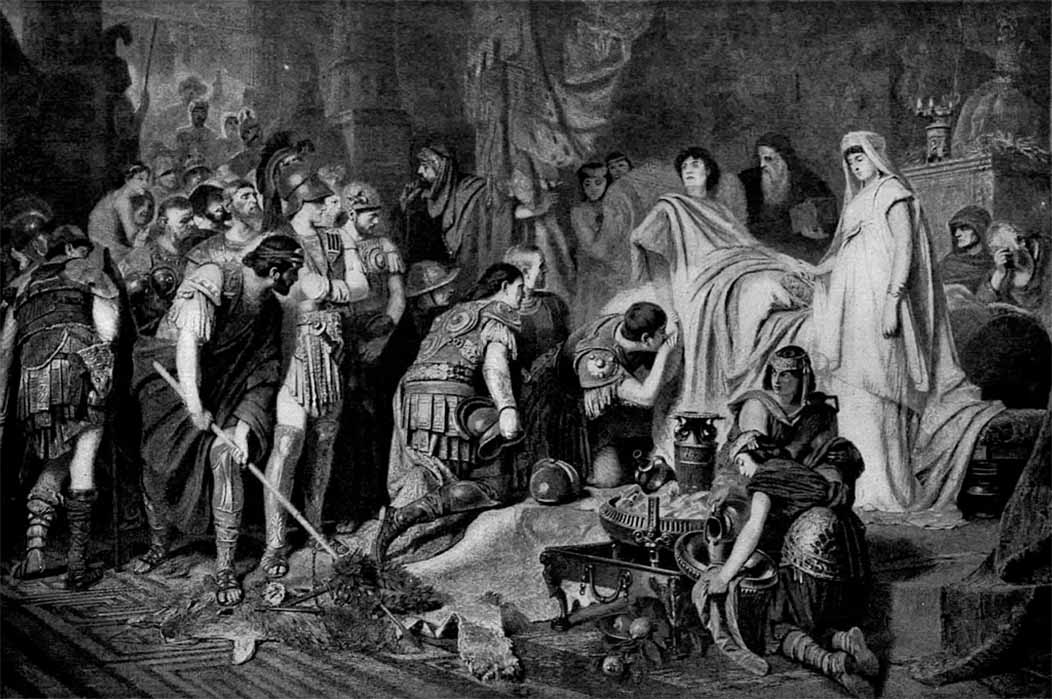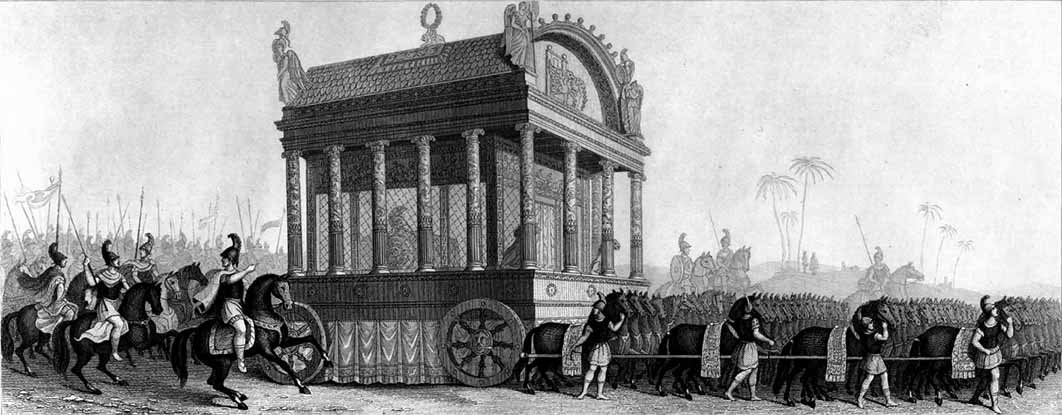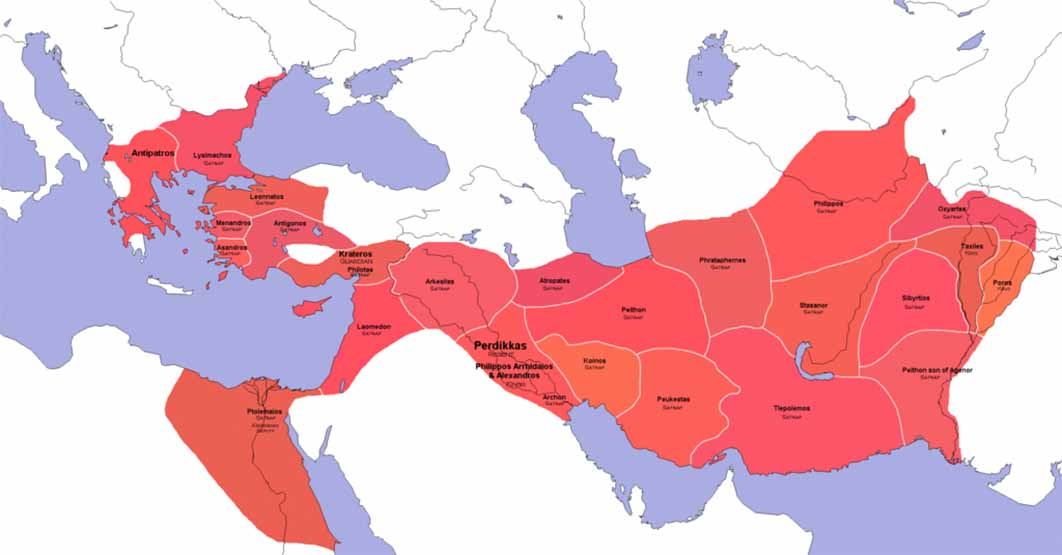
Ptolemy Soter’s Strategy: Becoming Pharaoh And A God Of Egypt
Ptolemy I, one of the surviving generals of Alexander the Great, became satrap and eventually pharaoh of Egypt, but he had to employ spin doctors to recreate an impressive ancestry related to Alxander, establish a new binary Graeco-Egyptian god Serapis and elevate himself to godly status to secure his rule and dynasty.

Farewell to Alexander the Great, by Karl von Piloty (1886) (Public Domain)
Aftermath of Alexander’s Death
Upon his return to Babylon in early 323 BC, Alexander the Great saw an ominous sign in the form of a deformed child. His advisors interpreted this vision as a sign of Alexander's impending death, and Alexander fell ill soon after. As news of Alexander's illness spread, so did rumours among his Macedonian soldiers that he was already dead. When a few of the soldiers forced their way into the chamber where he lay critically ill, Alexander still had the strength to acknowledge each of them. However, this did not mean that Alexander was on the mend, as he died on June 11, 323 BC. “The king who’d shattered armies,” as the Persian poet Ferdawsi says in his Shahnameh 526, “was at rest.”
Shortly after his death, Alexander’s soldiers argued over where their King’s body should be buried. Ferdawsi tells that a Persian soldier insisted on sending Alexander’s body to Persia (Iran), as it is the land of the King of Kings, while a Greek suggested sending the body to Greece, as it was Alexander’s birthplace. Finally, another Persian soldier won the debate, urging that the coffin be taken to a sacred grove near a lakeside mountain to consult an oracle for guidance. He said: “The mountain will respond when you ask it.” When the soldiers consulted the hill, they received the response that: “His [Alexander’s] remains belong in Alexandria.” And that is the legend of how Alexander the Great’s body came to be buried in Alexandria.

Alexander's carriage, according to Diodorus Siculus, 19th-century representation (Public Domain)
The truth of what occurred after the death of Alexander is far less romantic. Following Alexander's death, his generals, the Diadochi gathered in Babylon to decide on the Empire’s future. In this meeting, they agreed that Perdiccas, Alexander's vizier, would rule as regent on behalf of Alexander's half-brother Phillip III Arridaeus, and on behalf of the child of Alexander’s widow, the pregnant Roxana, if she delivered a son (the future Alexander IV), and each of the generals would be allocated a critical satrapy. Ptolemy walked away from this meeting as the satrap of Egypt.
The generals soon became preoccupied with establishing their rules in their satrapies and Perdiccas planned to bury Alexander’s body in Macedon, where he ruled as regent. However, grasping that burying Alexander in his satrapy would significantly increase his legitimacy in the eyes of both Egyptians and Greeks, Ptolemy seized Alexander's body to take him to Egypt. Outraged, Perdiccas invaded Egypt in 321 BC, launching the first of the Diadochi Wars. However, Perdiccas was assassinated by his troops, effectively ending the war. Although Ptolemy could have taken his place, he was a pragmatic man, and he knew being the ruler of Egypt was safer than being the regent of the Empire. In the autumn of 321, as the victorious generals opposed to Perdiccas met at Triparadisus, (somewhere in the north of Syria) to establish a new settlement of offices and governorships in the Empire, Ptolemy was confirmed as the ruler of Egypt and Cyrenaica.





